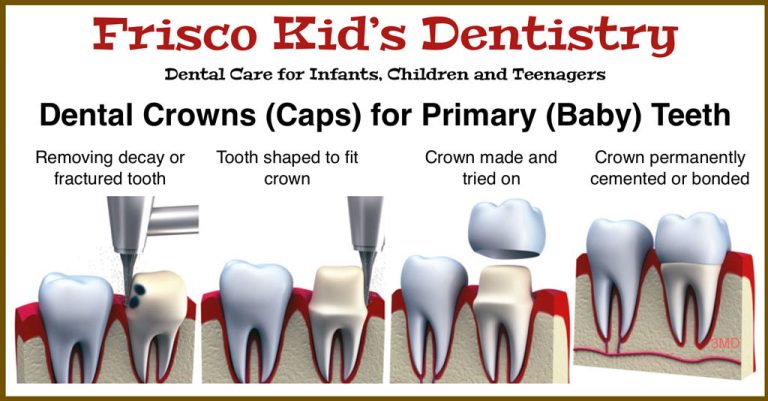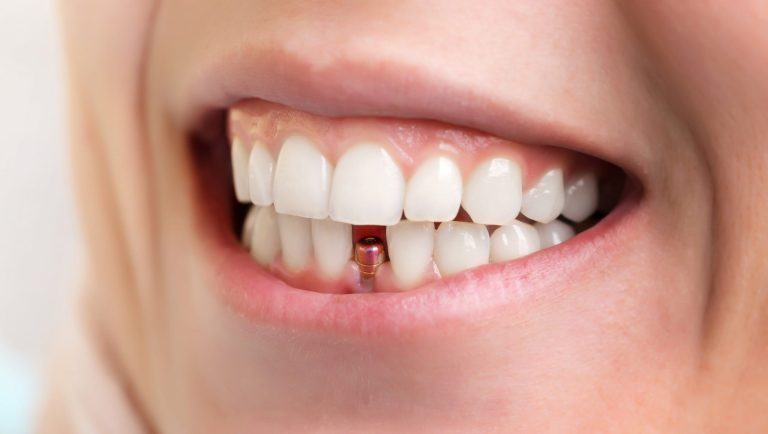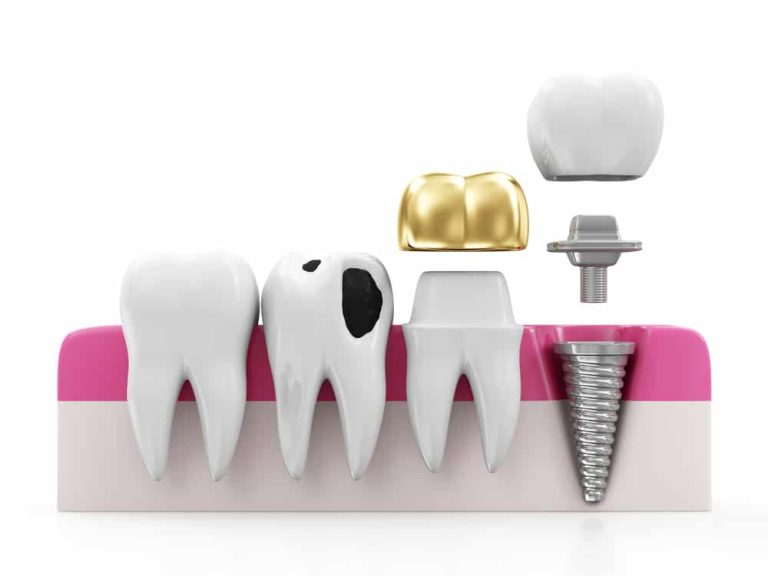Dental Crown or Veneer: Choosing the Perfect Smile Upgrade
Last Updated on 6 months by DR. ALBIN SIPES
Dental crown or veneer are both popular options for improving the appearance and functionality of teeth. Dental crowns are used to cover damaged teeth or after root canal treatments, providing protection and restoring their shape and size.
Veneers, on the other hand, are thin shells bonded to the front surface of the teeth, correcting the color, shape, and size.
Understanding Dental Crowns And Veneers
Understanding the differences between dental crowns and veneers is crucial when considering these two treatments. Dental crowns are cap-like structures that encase the entire tooth, providing durability and protection. On the other hand, veneers are thin porcelain shells that only cover the front surface of the tooth, mainly used for aesthetic purposes.
When it comes to appearance, dental crowns can improve the shape, size, and color of the tooth, while veneers focus more on enhancing the overall look of the smile. Assessing the suitability of dental crowns or veneers depends on factors such as the extent of tooth damage, desired outcome, and oral hygiene habits.
Consulting with a dental professional can help determine the most suitable treatment option for individual needs. Remember, making an informed decision is key to achieving a beautiful and healthy smile.
Factors To Consider When Choosing Between Crowns And Veneers
Factors to consider when choosing between dental crowns and veneers include evaluating the condition of the teeth, examining the desired outcome for the smile upgrade, and discussing the benefits and limitations of both options. By assessing the teeth, dentists can determine if a crown or veneer is more suitable.
Considering factors such as tooth damage, decay, and alignment issues can help make an informed decision. Additionally, the desired outcome of the smile upgrade should be taken into account. Are you looking for a complete tooth restoration or simply cosmetic enhancements?
Crowns are ideal for restoring damaged teeth while veneers primarily focus on improving aesthetics. Lastly, understanding the benefits and limitations of both options is crucial. Crowns offer durability and strength but require more tooth preparation, while veneers are less invasive but may not be as long-lasting.
Proper evaluation of these factors will guide you in choosing the most appropriate dental solution.
The Procedure: Dental Crown Vs Veneer
The dental crown procedure involves several steps. Firstly, the dentist begins by preparing the tooth and taking impressions. Next, a temporary crown is placed while the permanent one is being created. Then, the permanent crown is installed and adjusted for a perfect fit.
On the other hand, the veneer procedure is also a multi-step process. It starts with tooth preparation and taking impressions. The veneer is then custom-made in a dental lab before being bonded to the tooth. When comparing the duration and complexity of each treatment, dental crown procedures generally take longer and can be more involved, as they require more tooth structure removal.
Veneers are typically less invasive, offering a quicker and less complicated solution for dental enhancement.
Determining The Cost Of Crowns And Veneers
Determining the cost of dental crowns and veneers depends on several factors. These factors include the type of material used, the complexity of the procedure, and the dentist’s expertise. Dental crowns, often made of porcelain or metal alloys, are more expensive than veneers, which are usually made of composite resin.
Additionally, the location of the dental clinic and the level of customization required can also affect the cost. When weighing the pros and cons of each treatment in terms of cost, it is essential to consider that while crowns may be more expensive upfront, they tend to last longer than veneers.
Ultimately, consulting with a dentist will provide a more accurate estimate of the cost of crowns or veneers and help in making an informed decision.
Long-Term Maintenance And Durability
Long-term maintenance and durability of dental crowns and veneers are crucial for their lifespan. Proper care and maintenance play a vital role in ensuring their longevity. Regular brushing and flossing are essential for both crowns and veneers. Avoiding chewing on hard objects, such as ice or pens, can prevent damage to the dental restorations.
It is also important to schedule regular dental check-ups to monitor the condition of the
With proper care, dental crowns can last approximately 10-15 years, while veneers can last between 7-15 years. However, it is important to note that individual habits and oral hygiene practices can impact the lifespan of both dental crowns and veneers.
Therefore, it is essential to follow the advice of your dentist to maximize the longevity of these dental restorations.
Potential Risks And Complications
Dental crown and veneer procedures come with potential risks and complications that should be understood. Some of the possible risks associated with dental crowns include tooth sensitivity, gum irritation, and allergic reactions to the materials used. On the other hand, dental veneers may lead to tooth sensitivity, minor cracking, or even pop off if not properly placed.
If you experience any discomfort or notice complications after getting a crown or veneer, it is crucial to consult your dentist immediately. They can assess the situation and provide the necessary treatment to alleviate the issues. Regular dental check-ups and maintaining good oral hygiene are important in avoiding and minimizing potential risks associated with these treatments.
Case Studies: Real-Life Smile Transformations
Patients who opted for dental crowns or veneers experienced incredible smile transformations. These real-life case studies showcase the successes of individuals who chose either option. From repairing damaged teeth to enhancing their overall appearance, dental crowns and veneers have proven to be life-changing for these patients.
Insights into their experiences and high levels of satisfaction shed light on the benefits of these cosmetic dental procedures. Through this article, we aim to highlight the positive outcomes and showcase the incredible impact these treatments can have on one’s smile and self-confidence.
Whether patients chose crowns or veneers, their stories serve as a testament to the effectiveness of these procedures in achieving a more beautiful, radiant smile. Get inspired by these success stories and consider the possibilities for your own smile transformation.
Professional Advice: Dentist’S Recommendations
When it comes to smile upgrades, dentists provide expert advice on selecting between dental crowns or veneers. Patients often have common inquiries and concerns regarding these treatments. Dentists offer valuable insights into their perspective on the best treatment option. They address these concerns by providing professional recommendations based on individual cases.
By considering factors such as the condition of the teeth, desired outcome, and cost, dentists help patients determine the most suitable choice. Whether it’s dental crowns or veneers, dentists focus on delivering the best outcome for the patients’ oral health and aesthetic appeal.
By understanding the advantages and limitations of each treatment, patients can make an informed decision that matches their needs and expectations. Dentists’ recommendations serve as a guide in achieving a confident and beautiful smile.
Frequently Asked Questions On Dental Crown Or Veneer
What Is The Difference Between A Dental Crown And A Veneer?
A dental crown is a cap that covers the entire tooth, providing protection and strength. A veneer is a thin shell that is placed on the front surface of the tooth to improve its appearance.
How Long Do Dental Crowns And Veneers Last?
With proper care, dental crowns can last between 10 and 15 years, while veneers can last between 5 and 10 years. Regular dental check-ups and good oral hygiene practices can help extend their lifespan.
Are Dental Crowns And Veneers Painful To Get?
Getting dental crowns or veneers is usually not painful. Local anesthesia is used to numb the area, so you won’t feel any discomfort during the procedure. Afterward, you may experience some sensitivity, but it should be temporary.
Can Dental Crowns And Veneers Stain Or Discolor?
Dental crowns and veneers are resistant to staining, as they are made from materials that do not easily absorb color. However, good oral hygiene practices and avoiding certain foods and drinks can help prevent any potential discoloration.
Can Dental Crowns And Veneers Be Repaired If Damaged?
In some cases, minor repairs can be made to dental crowns and veneers. However, significant damage may require replacement. It’s important to consult with your dentist to determine the best course of action for your specific situation.
Can Dental Crowns And Veneers Be Used To Fix Crooked Teeth?
Dental crowns and veneers can help improve the appearance of misaligned teeth to some extent. However, they are not suitable for correcting severe orthodontic issues. Your dentist can recommend the most suitable treatment option for your needs.
Conclusion
Both dental crowns and veneers offer solutions for enhancing the appearance and functionality of teeth. While dental crowns provide more extensive coverage and protection for damaged teeth, veneers are ideal for addressing minor cosmetic issues. The choice between the two ultimately depends on the specific needs and preferences of the individual.
It is essential to consult with a dentist to evaluate the condition of the teeth and discuss the desired outcome. Factors such as cost, time, and durability should be considered when making a decision. Additionally, maintaining good oral hygiene practices is crucial for the longevity and success of any dental restoration.
By understanding the differences between dental crowns and veneers, individuals can make an informed decision and achieve the beautiful, healthy smile they desire. Partnering with a skilled dentist will ensure the best possible outcome and enhance overall oral health.



